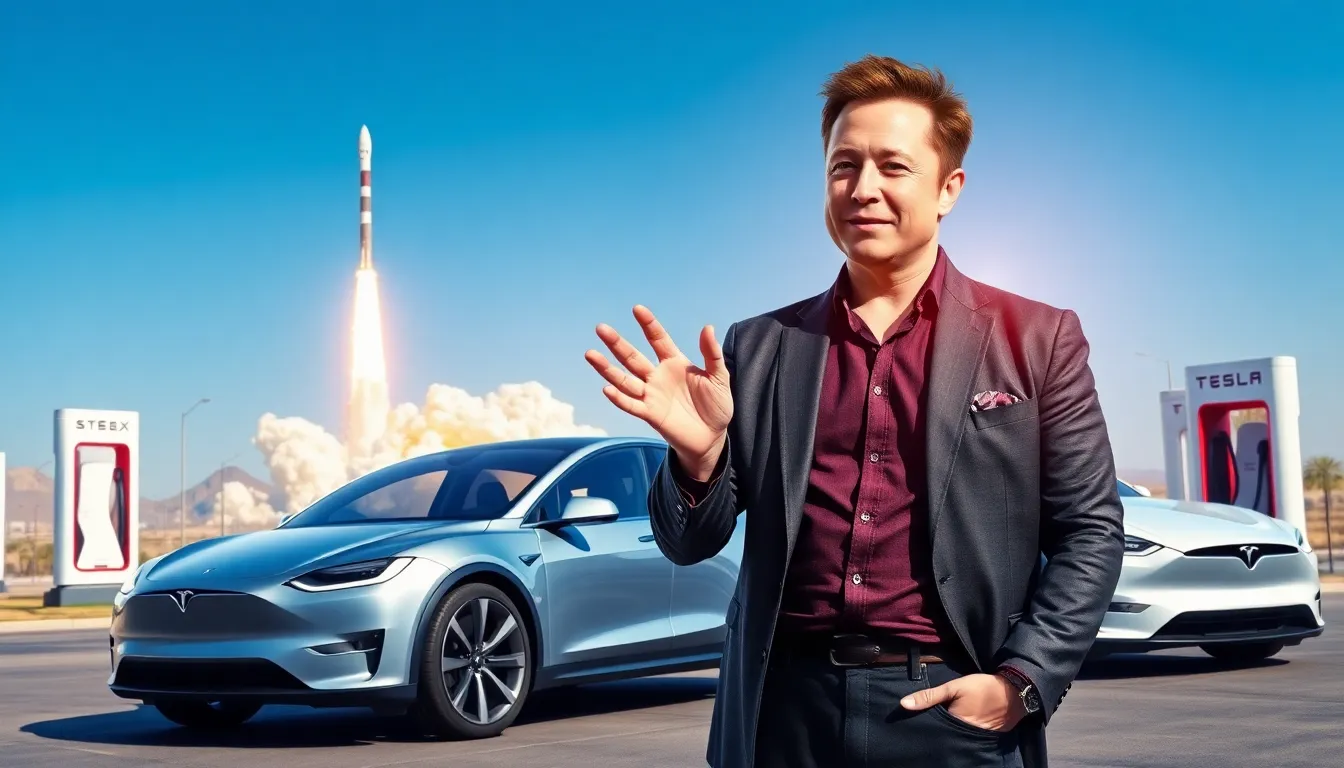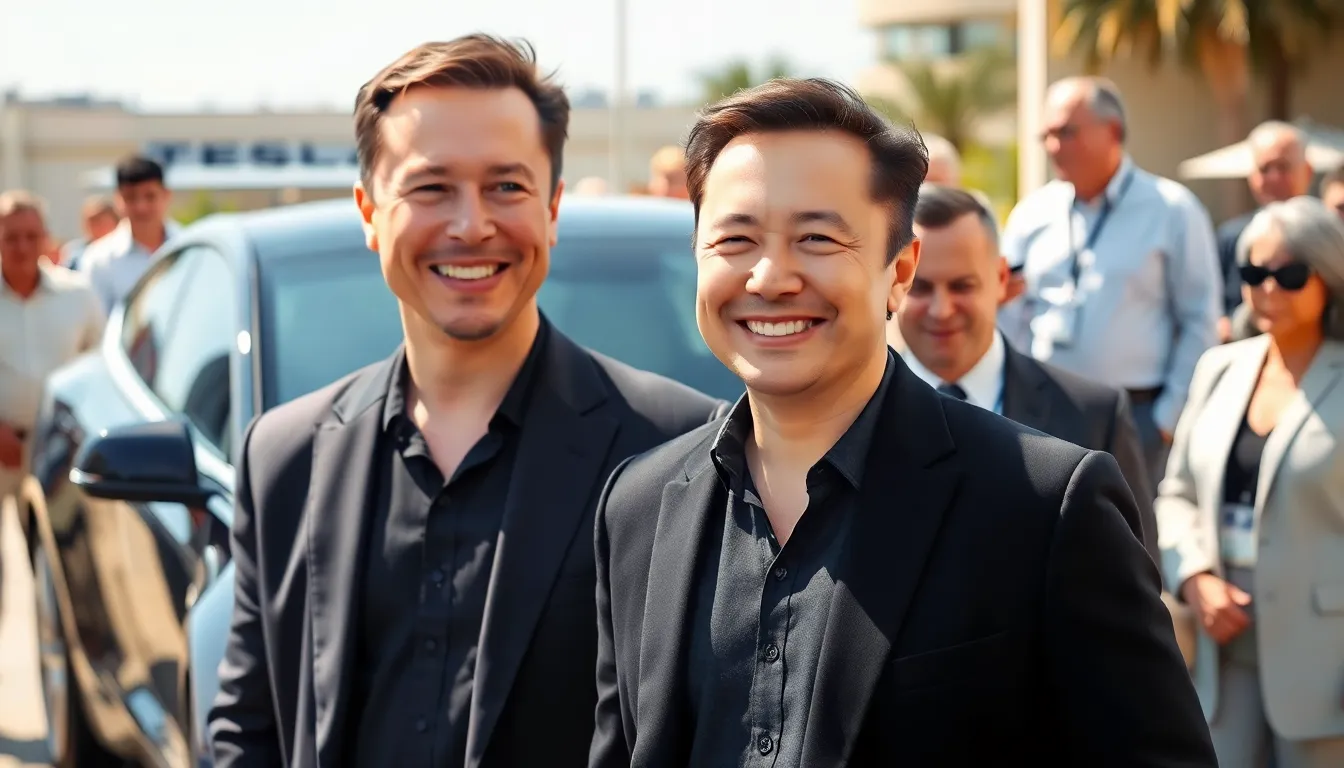Elon Musk, the visionary behind companies like Tesla and SpaceX, has become a significant figure not just in the tech world but also in the realm of U.S. government and policy. His influence stretches beyond business innovation, as he actively engages with political leaders and shapes discussions on critical issues like climate change, space exploration, and technology regulation.
As Musk’s ventures continue to push the boundaries of what’s possible, understanding his position within the U.S. government landscape is vital. This article explores how his actions and relationships with policymakers impact legislation and the future of American industry. With Musk at the forefront, the intersection of technology and governance is more relevant than ever.
Table of Contents
ToggleOverview of Elon Musk’s Influence
Elon Musk shapes U.S. government policy through his direct involvement in key discussions. He engages with political leaders and agencies regarding climate change, advocating for sustainable energy solutions. Musk’s proposals often focus on reducing carbon emissions and promoting electric vehicles.
Musk also plays a vital role in space exploration initiatives. His company SpaceX collaborates with NASA, advancing aerospace technology and commercial space travel. His vision for interconnected satellite systems, such as Starlink, addresses global internet access, enhancing communication infrastructure.
Musk’s influence extends to technology regulation. He provides insights on artificial intelligence, urging policymakers to establish safety guidelines. His perspectives on cryptocurrencies also impact regulatory frameworks, as he actively discusses digital currencies’ potential and risks.
Musk’s close relationships with government officials illustrate the significance of private sector involvement in shaping public policy. His activism often aligns with national interests, positioning him as a key figure in discussions around innovation and economic development.
Elon Musk’s Role in the Tech Industry

Elon Musk significantly shapes the tech industry through various innovative ventures and contributions. His work focuses on advancing technologies that promote sustainability and connectivity.
Key Innovations and Contributions
- Electric Vehicles: Tesla’s electric vehicles revolutionize transportation with high-performance models that promote sustainable energy sources.
- Space Exploration: SpaceX’s Falcon rockets and Dragon spacecraft redefine space travel, lowering launch costs and increasing accessibility to orbital missions.
- Renewable Energy Solutions: Tesla’s solar products, like Solar Roof and Powerwall, offer sustainable energy alternatives, integrating solar power with home energy management systems.
- AI Development: Musk co-founded OpenAI, focusing on developing artificial intelligence in a safe and beneficial manner, while advocating for responsible AI regulations.
- Satellite Internet: Starlink, a SpaceX initiative, aims to provide high-speed internet service globally, targeting areas with limited connectivity.
Impact on Economic Growth
- Job Creation: Tesla and SpaceX collectively employ thousands, fostering job opportunities in manufacturing, engineering, and technology sectors.
- Investment Surge: Musk’s companies attract significant investment, driving capital into innovative technologies, which stimulates overall economic growth.
- Supply Chain Development: Local suppliers benefit from contracts with Tesla and SpaceX, enhancing regional economic stability and diversification.
- Market Disruption: Musk’s ventures challenge traditional industries, pushing competitors to innovate, which leads to increased efficiency and technological advancements.
- Innovation Ecosystems: Musk’s influence encourages the creation of startups and tech-focused communities, fostering collaborative innovation and entrepreneurial growth.
Political Connections and Influence
Elon Musk’s relationships with political figures and his involvement in campaign financing amplify his influence in U.S. governance. These connections bolster Musk’s ability to shape policies impacting technology and sustainability.
Relationships with Government Officials
Musk maintains relationships with key government officials, which enhances his access to policy discussions. Regular meetings with lawmakers enable him to communicate his perspectives on technology innovation and regulation. Collaborations with officials from agencies, such as NASA and the Department of Energy, facilitate discussions on vital projects like space exploration and sustainable energy initiatives. These interactions foster partnerships that align government priorities with Musk’s business objectives, ultimately influencing policy direction toward technology advancement and renewable energy adoption.
Contributions to Political Campaigns
Musk actively supports political campaigns through financial contributions, targeting candidates who align with his vision for sustainable technology and innovation. His donations focus on officials in both major political parties, spurring bi-partisan support for policies promoting clean energy and technological advancements. These contributions help candidates who prioritize issues central to Musk’s interests, including climate change, infrastructure development, and enhanced internet access. By funding campaigns, Musk positions himself as a significant player in the political landscape, facilitating dialogue around the future of technology and energy policy in the United States.
Regulatory Challenges and Engagement
Elon Musk’s position in U.S. governance involves navigating complex regulatory challenges and advocating for significant policy changes. His proactive approach influences technology standards and environmental regulations, impacting various sectors.
Navigating Government Regulations
Navigating government regulations requires strategic interactions with regulatory bodies. Musk faces challenges related to compliance, safety standards, and environmental policies. His companies, such as Tesla and SpaceX, operate in heavily regulated environments. For example, Tesla must adhere to automotive safety regulations while delivering innovative electric vehicles. SpaceX deals with aviation and space launch regulations, ensuring compliance with the Federal Aviation Administration (FAA). By working directly with agencies and participating in public consultations, Musk influences regulatory frameworks that govern the tech and aerospace industries.
Advocacy for Policy Changes
Advocacy for policy changes enables Musk to shape legislation that impacts technology and sustainability. He actively engages with lawmakers to promote renewable energy initiatives and electric vehicle adoption. Through public statements and direct lobbying efforts, Musk underscores the importance of clean energy policies that align with his vision. His financial backing of politicians sympathetic to technology and clean energy fosters bipartisan dialogue on crucial issues. He emphasizes the need for streamlined regulations to encourage innovation, particularly in artificial intelligence and space exploration. Overall, Musk’s advocacy efforts drive governmental support for policies that enhance technological advancement and environmental sustainability.
Public Perception and Media Coverage
Public perception of Elon Musk varies widely, influenced by his innovative achievements and controversial statements. Media coverage plays a significant role in shaping narratives surrounding his actions and influence within the U.S. government.
Support from Fans and Critics
Supporters view Musk as a visionary leader, crediting him with advancing clean energy and space technology. Many fans appreciate his commitment to addressing climate change and promoting sustainable practices. In contrast, critics often express concerns regarding his management style and statements on social media. Detractors highlight potential ethical concerns and the implications of his influence on government policy. This duality creates a complex public image, further fueled by varying levels of trust in his motives and business practices.
Media Representation of Musk’s Role
Media representation reflects Elon Musk’s multifaceted role in government interactions. Coverage often emphasizes his leadership at Tesla and SpaceX, showcasing innovations in electric vehicles and commercial space travel. Articles will often focus on his collaborations with government agencies, such as NASA, and his proactive stance on regulatory issues, especially surrounding AI and renewable energy. News outlets frame Musk both as a disruptor challenging the status quo and as a powerful figure with significant lobbying power, illustrating the complexity in public discourse regarding his impact on U.S. policy.
Elon Musk’s role in U.S. government and policy is undeniably significant. His ability to influence legislation and regulatory frameworks showcases the powerful intersection of technology and governance. By championing sustainable energy and innovative technologies, Musk not only drives economic growth but also addresses critical global challenges.
His collaborations with government entities like NASA highlight the importance of public-private partnerships in advancing space exploration. As Musk continues to navigate the complex landscape of regulations, his proactive approach ensures that technology evolves in a manner that benefits society.
Public perception of Musk remains polarized, reflecting his dual role as a visionary leader and a controversial figure. Understanding the nuances of his influence is essential for grasping the future direction of American industry and the evolving relationship between tech and government.





